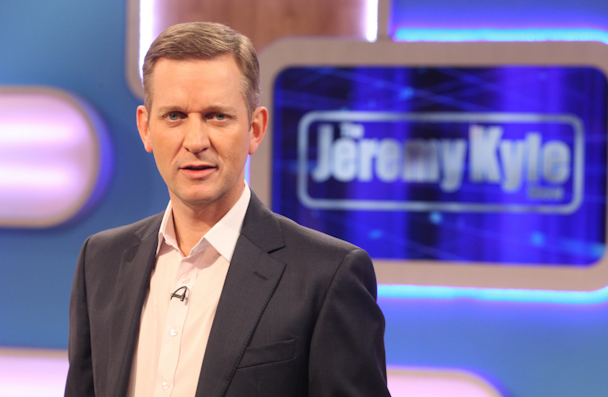Jeremy Kyle cancellation 'low point' for ITV says controller Kevin Lygo
The cancellation of the Jeremy Kyle Show following the death of one of the show's participants in May was a low point for the broadcaster, according to ITV director of television Kevin Lygo.

The Jeremy Kyle Show was cancelled in May
Speaking at the Edinburgh International Television Festival with broadcaster Kay Burley, Lygo discussed the cancellation of the infamous talkshow, and criticism of ITV hit Love Island following the deaths of contestants Mike Thalassitis and Sophie Gradon. "The whole Jeremy Kyle experience" was the channel's low point of the year, he said.
"The death was a really serious moment and a shock to everybody. The production team was of course, distraught."
Lygo said that the show had "tended to run itself" for much of its 14-year run but that upon review, elements of the show "that had worked for over a decade, suddenly looked anachronistic".
"We looked at in the cold light of day and thought: would we start a show like this today? The answer is no," he said.
The channel boss defended the show's use of lie detectors – an element that came under harsh scrutiny during a Select Committee hearing. "The production team assumed that most people understood [the lie detector] wasn't 100% effective. The audience, who have watched it many, many times, understood it wasn't strictly true."
Lygo said that Kyle was a "consummate broadcaster" who did not deserve to be blamed for the show's fall from grace. "For him to suddenly lose the job he'd been doing and lauded for over fifteen years, was devastating," he said. The presenter was set to return to ITV's morning schedules, according to Lygo, and a new show fronted by Kyle would soon pilot, in addition to ongoing documentary series The Kyle Files.
"No doubt he will return. I can't imagine what we would do," said Lygo, who noted that Kyle would probably not take up his old 9.30 slot. "I have spoken to him about it, of course, and I think he feels as well that whatever he does next, it shouldn't be in that 9.30am slot."
Lygo said the channel had recently reviewed its duty of care policies across all of its programmes. "Our duty of care policies have been looked at and tightened. We've been checking our procedures to make sure they're fine."
Regarding ITV2 smash Love Island, he said: "I think as long as we are giving them all the support we possibly can, from selecting them, working with them, preparing them for the outside world and the onslaught of social media, then we are looking after them."
Duty of care debate
The duty of care extended by the producers of reality TV has been a hot topic at this year's TV festival. Looking back at the emergence of Jade Goody on Big Brother, Kelly Webb-Lamb, deputy director of programmes at Channel 4, said: "There are so many things we’d do differently in terms of how it was made. There are so many red flags about how she was looked after, about how Shilpa [Shetty] was looked after. Instinctively we would all behave differently."
Goody's partner Jeff Brazier suggested that changes in the industry meant that "a Jade would never been given that opportunity again".
Following his Alternative MacTaggart address at the festival, talkshow titan Jerry Springer weighed in on the topic, and on the deaths of two participants following appearances on the Jerry Springer Show. "In both those cases, it occurred several weeks or months later, and the situation in those lives hadn't changed. It would be like blaming Walmart because someone died after shopping there."
Springer went on to question whether reality TV programmes' responsibility for participants should be held to a higher degree of scrutiny than that of news reporters or investigative journalists.
"I was a TV anchor and reporter for 10 years and never once did the station say to a person we were going to run a story about: 'If this story might upset you, or hurt your marriage, or damage your career, we won't run it'. So what is the moral difference between a newspaper or news programme and a television show that is 100% voluntary?"

